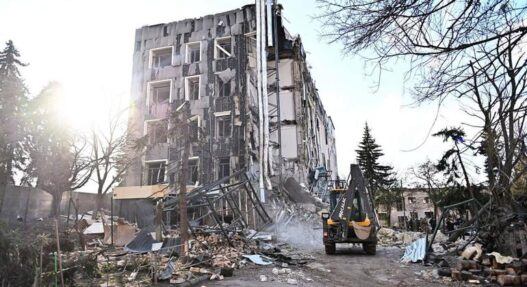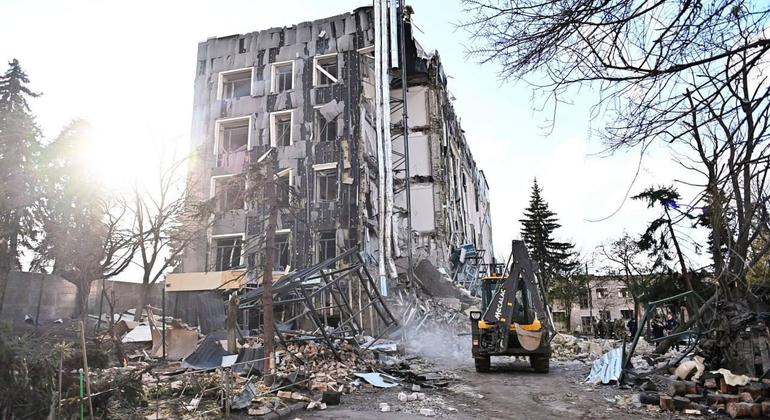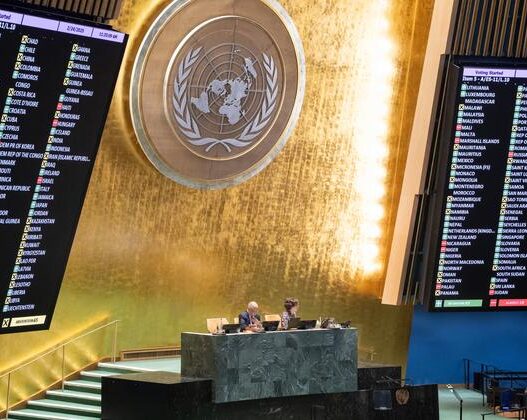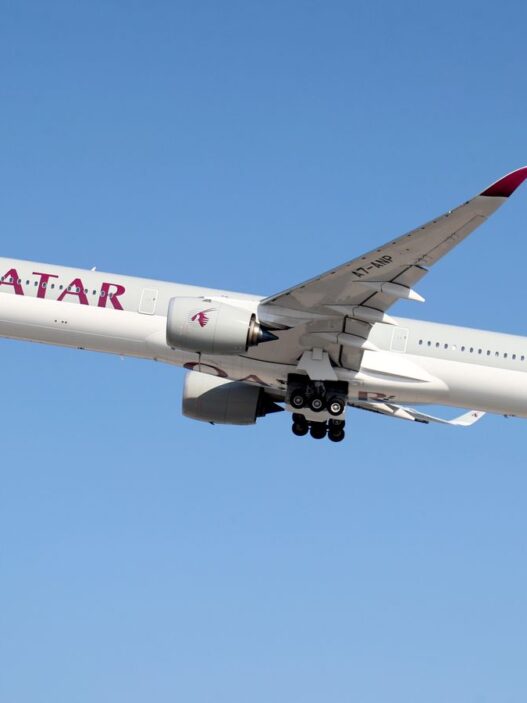The updated joint Rapid Damage and Needs Assessment (RDNA4) commissioned by the Ukrainian Government, the World Bank Group, the European Commission and the UN, comes as Russia’s full-scale invasion enters its fourth year.
It covers damage incurred since intensified conflict erupted on 24 February 2022 through to 31 December 2024.
This year, the Government of Ukraine, with support from donors, has allocated $7.37 billion (€7.12 billion) to address priority areas such as housing, education, health, social protection, energy, transport, water supply, demining, and civil protection.
As a total financing gap of $9.96 billion (€9.62 billion) for recovery and reconstruction needs remains, mobilizing the private sector remains critical.
Russian attacks continue
“In the past year, Ukraine’s recovery needs have continued to grow due to Russia’s ongoing attacks,” said Prime Minister Denys Shmyhal.
RDNA4 reveals that direct damage in Ukraine has now reached $176 billion (€170 billion), up from $152 billion (€138 billion) from the previous assessment issued in February 2024. The hardest hit sectors are housing, transport, energy, commerce and industry, and education.
Thirteen per cent of all housing stock in the country has been damaged or destroyed, affecting more than 2.5 million households. The energy sector has also experienced a 70 per cent increase in damage or destroyed assets, including power generation, transmission, distribution infrastructure, and district heating
Housing hard hit
Across all sectors, the regions closest to the frontline – Donetsk, Kharkiv, Luhansk, Zaporizhzhia, Kherson, and Kyiv – sustained about 72 percent of the total damage.
Reconstruction and recovery needs are the highest in housing, accounting for almost $84 billion (€81 billion)) of the total long-term needs. The transport sector follows at almost $78 billion (€75 billion), with the energy and extractives sector coming in third at nearly $68 billion (€66 billion).
Meanwhile, reviving commerce and industry will require over $64 billion (€62 billion), and agriculture over $55 billion (€53 billion).
The assessment noted that the Russian invasion continues to have severe impacts on Ukraine’s agriculture sector, which had previously contributed 10 per cent to GDP, employed 14 per cent of the labour force and accounted for over 40 per cent of all exports.
Additionally, across all sectors, the cost of debris clearance and management alone reaches almost $13 billion (€12.6 billion).
Private sector support
RDNA4 identifies and excludes over $13 billion (€12.6 billion) in needs across eight sectors that have already been met by Ukraine, with support from partners and the private sector.
For example, government data shows that at least $1.2 billion (€1.1 billion) was disbursed from state budget and donor funds last year for housing sector recovery, while over 2,000 km of emergency repairs were carried out on motorways, highways, and other national roads.
Furthermore, the private sector has met some of the critical needs, highlighting its key role in the recovery and reconstruction process, and many firms have started to invest in repairs and resilience. Estimates indicate that the private sector could potentially cover a third of total needs.

Alina, 12, stands next to her damaged home in Kobzartsi, Mykolaiv region.
Investment and inclusion
The UN Humanitarian Coordinator in Ukraine, Matthias Schmale, noted that “the true cost of war is measured in human lives and livelihoods,” and the international community must help to create more opportunities for Ukrainians to rebuild their lives with dignity.
“This means investing in dignified jobs, education, healthcare, and prioritizing the inclusion of vulnerable groups among women and girls, children, displaced people, Roma communities, war veterans and persons with disabilities,” he said.
“The path forward requires strengthening partnerships, de-risking investments and a steadfast commitment from all of us not just help structures but support restoring the social fabric of war-impacted communities.”
RDNA4 also highlights that prioritizing investments in recovery and reconstruction will be critical for Ukraine’s accession to the European Union (EU) and long-term resilience.
Thus, recovery provides an opportunity not just to address the destruction caused by the ongoing invasion but also to build back better by adopting innovative solutions and reforms that meet the expectations of EU membership.












